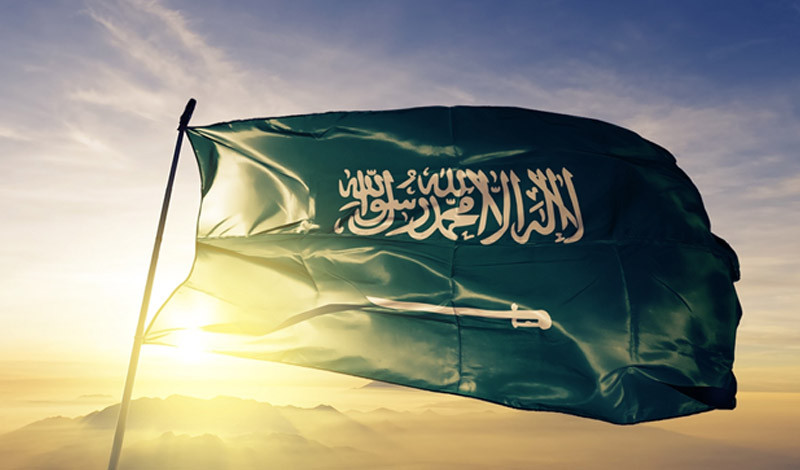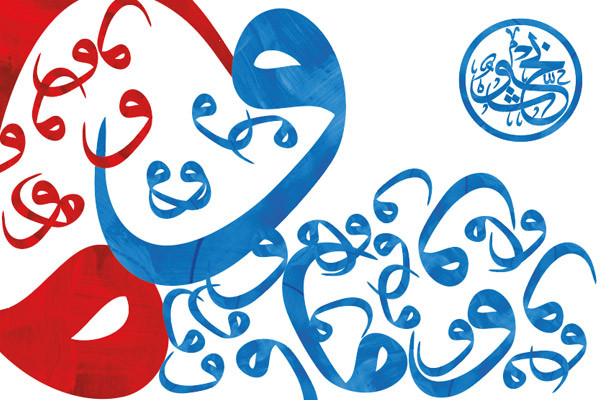In Saudi Arabia: Diplomacy Wins
Saudi Arabia is facing security challenges associated with the presence of the Houthi militias on its southern border whose escalating threats led King Salman bin Abdulaziz to announce the participation of Saudi Arabia in Operation Decisive Storm in 2015 within Arab coalition. The coalition aims to restoring the legitimate state of Yemen, containing Iran’s regional influence and maintaining Saudi National Security.

- by Rasha Al Joundy ,
- Tuesday, 29th October, 2019
Saudi Arabia is facing security challenges associated with the presence of the Houthi militias on its southern border whose escalating threats led King Salman bin Abdulaziz to announce the participation of Saudi Arabia in Operation Decisive Storm in 2015 within Arab coalition. The coalition aims to restoring the legitimate state of Yemen, containing Iran’s regional influence and maintaining Saudi National Security. On the other hand, Saudi Arabia, as other Arab countries in the region, is facing the dangers of terrorism represented by ISIS and Al-Qaeda, a danger that has plagued the Middle East since the Arab Spring. This danger has led Saudi Arabia to join the Global Coalition to Defeat ISIS and to form the Islamic Military Counter Terrorism Coalition from 34 Muslim countries. Under this security nature scene, the military perspective has been dominating in Saudi Arabia and in many other regional states, which has high levels of security concerns due to the non-stop rapidly increasing series of events in the Arab region. That did not mean that Saudi Arabia does not have a political agenda; any effort that ends with a formation of a military alliance, is definitely based on backgrounds and political action to bring together allies and coincide interests between countries. However, we notice that Saudi’s government has increased focus on political TV channels in recent months, where interview shows have been intensified. Young characters with experience have been distributed among state’s centers and institutions. Saudi public opinion, the community elite, and the press have also become increasingly focused on the political paths on which the government is working. This climate indicates a shift in Saudi foreign policy that reduces the use of its coarse tools and opens up more room for its soft power.
Efforts to resolve Yemeni crisis:
A broad-spectrum diplomatic movement in Saudi Arabia has finally succeeded in mediating between the Yemeni parties to reach an agreement to resolve the dispute between the Southern Transitional Council and the legitimate government headed by Abdrabbuh Mansur Hadi. There is no doubt that dealing with Yemen’s affairs is very difficult and complicated. However, it seems that Prince Khaled bin Salman has managed to handle Yemeni file prudently. He has achieved the goal of restoring the unity of Yemen’s ranks to face the destruction that the Houthi group continues to commit in Yemen by persisting the war and violating the truces of the United Nations.
After years of war, it can be said that Riyadh agreement and the consent of the transitional council and the legitimate government to share the ministers equally in the government was a great progress. Not only in itself, as it ended attrition within the coalition, but also on an objective level; as it provided an acceptable form of political sharing by both sides. In view of the civil wars and deep conflicts among the region’s countries, we believe that reaching “compromises” requires a careful and long discussion to convince the parties that this is the only solution for time being and that it is the solution required for ending the crisis.
Avoiding the principle of all or none:
Riyadh agreement also indicates that Yemeni parties themselves have concluded that intransigence will have catastrophic consequences for everyone, and that neither side will win over the other. Hence, the only winning player will be Iranians and their Houthi ally.
Rationality and sound logic that brought the parties together does not mean that challenges do not exist. It is inconceivable to resolve fundamental differences based on an initial conception of what the political and military landscape might look like. The most important is how to implement this multifaceted solution in practice and on the ground, in a way that guarantees the continuous support of its signatories and ensures prevention of parties of interests from jamming and failing the agreement. In civil wars, the elements of vandalism prevail over the elements of construction and the values for which the parties fought will be lost as a result. At the end, the agreement will be based only on achieving peace security apart from any other standard.
Reviving the joints of Saudi Arabia’s diplomacy:
Saudi Arabia has also strengthened its diplomatic joints by introducing new figures to manage its foreign relations. Among whom was Princess Reema bint Bandar, who was appointed by King Salman bin Abdulaziz as ambassador of Saudi Arabia to Washington. Through her activism, Princess Reema has already begun to attract the attention of many Saudi affairs’ specialists in USA, as the first Saudi woman to be appointed ambassador and to the most important ally for her country. On the other hand, comes the appointment of Prince Faisal bin Farhan bin Abdullah Al Saud as Minister of Foreign Affairs. He is of long time experience in a number of critical government positions, which explains the apprehension of some Arab and Iranian media towards his appointment and their attempts to criticize him and tarnish his image before he starts. Prince Faisal has excellent relations in the United States by virtue of his work at the Embassy of Saudi Arabia in Washington. He is also fluent in English and German, a cultural-political quality of the Foreign Minister that connects him to the western European and American intellect. This era is characterized by misunderstandings and misjudgments associated with the nature of Arabs and Muslims and their goals and ambitions within Western societies.
Russia contributes to Vision 2030:
President Putin’s visit to Saudi Arabia has come at a critical time for the region, that recently faced an Iranian escalation, disruption of navigation in the sea lanes and an attack on Saudi oil facilities. Agreements with Russia are expected to open a new horizon for Saudi Arabia in fields of transferring knowledge and technology and industrial projects. In vision 2030, Saudi Arabia does no longer look for just importing goods and exporting oil. Rather, it intends to expand its economic horizon and possess industrial and technological capabilities that enable the country to export its own products. Saudi Arabia has the required population for transferring to an industrial state. It actually needs this shift, because it has the right population.
Saying that Putin’s visit to Saudi Arabia after twelve years is a reflection of the growing role of Russia in the Middle East is likely true. However, it furthermore indicates that Russia has exploited the first opportunity to forging stronger ties with Saudi Arabia, after proving success in Syria. It also represents a reflection of the importance of Saudi Arabia itself at the regional level, despite the Russian relations and interests with Iran, the foremost danger for Arabs. This explains Putin’s statement that he does not support a state against another in the region, in reference to his disapproval of any attack by Iran against Saudi Arabia following the talks about Aramco attack and Iran’s responsibility for it.
Some researchers tried to say that the only offer that President Putin can make to Saudi Arabia is nuclear technology, whose deployment in the region is considered a strategic threat to the world. They also tried to say that Putin intends to use his visit to revive talks on arms deals and S-400 missiles that Ministry of Defense of Saudi Arabia may consider after the attacks on Aramco. However, Saudi Arabia did not follow the steps of the NATO member, Turkey, and risk questioning its relationship with the United States at this time by holding talks associated with Russian weapons, which are contrary to American and British military equipment on which Saudi Arabia depends. Although such discussion took place during King Salman’s visit to Russia in 2017, an arms deal with Russia at this time would support reports that questioned the effectiveness of US weapons and their ability to protect Saudi Arabia after the attacks on Aramco. It will also escalate the level of criticism within the anti-Saudi politicians in Washington, assuming that the American’s ally is being replaced by a Russian one, which is not true even if Saudi Arabia made such deals. On the other hand, Saudi Arabia has not started a discussion or concluded an agreement related to a nuclear program with Russia. On the contrary, following Putin’s departure, US Secretary of Energy Rick Perry announced an ongoing and positively progressing talks on nuclear energy, for peaceful purposes, between Saudi Arabia and the United States.
The point here is the clear distinction that the Saudi leadership has between the strategic Saudi Arabia – United States relationship and the new evolving relationship, based on economic aspects and trust building process, that Saudi Arabia has started with Russia. The latter is considered a part of the agenda of approaching east; as China is rising in the world economy and all countries are racing to take advantage of the Silk Road project announced by Chinese President Xi Jinping in 2013 from Kazakhstan. So, the exaggerations associated with Putin’s visit that aimed at harming Saudi relations with the United States did not work. Political attempts against President Trump, as the 2020 presidential election approaches, also failed to use Saudi Arabia to describe his policy in the Gulf as bad. Saudi Arabia has made significant agreements with Russia, and maintained relations with the United States that are not affected by yellow press.
Economic and political support for Arab countries:
Within the framework of its support for Arab countries, Saudi Arabia is working with the UAE to support Sudan’s transitional period and contribute to its success factors politically, through mediation that has succeeded in reaching an agreement between the Sudanese parties, and economically, through its request to remove Sudan from the US list of state sponsors of terrorism. In addition to providing grants promised by Saudi Arabia and the UAE. The Sudanese Minister of Finance announced the receipt of half of the mentioned grants of three billion dollars by Sudan and the readiness to complete it by the end of next year. It is advantageous to mention that Saudi Arabia is the largest Gulf investor in Sudan with estimated investments of 11 billion dollars, while Qatar’s share, for example, does not exceed 1.5 billion dollars.
Saudi diplomacy is also active in the Israeli–Palestinian conflict in which Saudi Arabia disagrees with the US administration that attempts to impose the deal of the century on the Palestinians. During his meeting with President Mahmoud Abbas, King Salman affirmed the Kingdom’s stance in support of the two-state solution in line with the resolutions of the Security Council and the international consensus, thus rejecting the policy of imposing a fait accompli on the Palestinians.
The Kingdom’s engagement in variety of relations that intertwine sometimes and appear to be contradictory in others, indicates a new and long-term vision of Saudi political life and an agenda that is wisely and quietly planned to ensure results that serve interests of Saudi Arabia itself. However, this vision intersects with its regional allies, most importantly the UAE, and its international ones. The flexibility to shift from one political track to another can be seen as a new feature of the Saudi government. It is similar to the innovative projects that the Kingdom has been abounding in recent years; surprising, positive, bold, and most importantly, all that the Arabs wanted and wished for Saudi Arabia for decades.

Rasha Al Joundy
Research Supervisor
Read More
Areas of Expertise
- Expert in the Gulf region politics,
- Security and internal affairs and has been working on the GCC region since 2011.
Education
- Master’s degree in International Relations and World Order at Leicester University (UK 2016).
- Graduated from the Faculty of Law – University of Damascus in Syria in 2006
Bio
completed her master’s degree in International Relations and World Order at Leicester University (UK 2016). She graduated from the Faculty of Law – University of Damascus in Syria in 2006, and trained as a lawyer to register at Damascus bar association. She is an expert in the Gulf region politics, security and internal affairs and has been working on this region since 2011. Rasha Currently work as a senior researcher for Gulf affairs and supervise the training program at Dubai Pubic Policy Research Centre.

